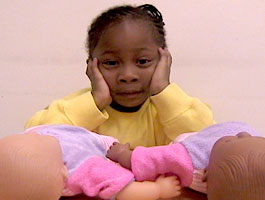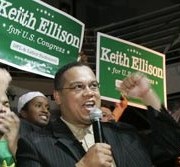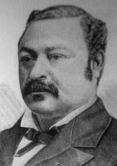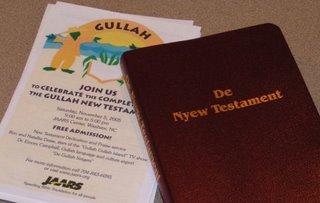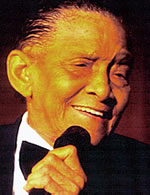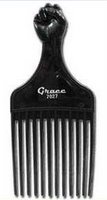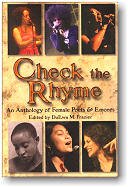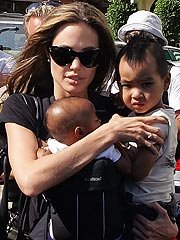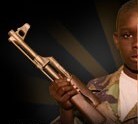
In the name of the mother, the daughter, and the feminine spirits, I’d like to tell you the story of Saartjie (Sarah) Baartman—also known as Hottentot Venus. I discovered her story several years ago, but the tale still shakes me.
Saartjie, whose life has inspired both a play and a novel, came from the Khoikhoi people—the indigenous group that once populated what is now the Eastern Cape in South Africa. When her people were attacked, had their land seized and were enslaved by the Dutch in the late 18th century, Sarah moved to Cape Town to escape capture.
When she was 16, Alexander William Dunlop, a doctor, convinced her to go back to Britain with him where he said she could make money by showing her body to the public. You see, the Khoikhoi women were famous for their protruding buttocks and enlarged external genitalia. Her inner labia, like the other women, had been stretched to allegedly make sex a better experience for the males.
The Khoikhoi were called “Hottentots” because the Dutch thought their language—which includes distinctive clicking sounds—sounded like stuttering, so they called the people “stutterers” or “Hottentots” in their language. Of course, to the indigenous South Africans, the Hottentot reference is considered offensive. The Europeans called Sarah “Venus” because of her unusual genitalia.
Sarah, working as a servant for Dunlop in England, was put on display as part of a freak show, alongside people with circus-like attractions. Sarah’s demise continued in Paris where she worked for circus manager Sieur Reaux, a down-on-his-luck French nobleman.
She was poked, proded and insulted by onlookers. Imagine the comments:
“Look at her. Look at that black wench!”
“She sure is an African! Big lips, big nose, big bottom! Have you ever seen such a thing?” Words like these must have been spoken.
Washington Post writer Lynne Duke describes the shameful scene: “She endured ogling, lascivious audiences who poked at her, hissed at her, grabbed at her rear end, even tried to probe her private parts.” (Duke, 2003)
Sarah had been duped. She was lured to Britain with promises of wealth and fame, but instead was treated like a circus animal with no more dignity than a caged monkey or ape. For it is the ape that many European “natural” scientists said black people were linked to. Sarah’s physical attributes became proof for these scientific racists that black people were subhuman.
Suffering humiliation and mistreatment, Sarah tumbled into alcoholism and drug abuse. No wonder. The French scientist Baron Georges Cuvier, a famous naturalist of the time, examined Sarah for three days at a special meeting for scientists at the Museum of Natural History. He used her body to try to prove that blacks were on the low end of the human development chain.
At some point Sarah became a prostitute and died from tuberculosis or syphilis— the records aren’t clear—at the age of 26. Sarah was defiled even in death as Cuvier cast her lifeless body in plaster and dissected her—preserving her brain and genitals by pickling them in jars. Sarah’s body parts were displayed at the Musée de l’Homme (The Museum of Mankind) until 1985 when they were put into storage.
With the ending of apartheid, South Africa fought France for the return of Sarah’s remains to her homeland. It wasn’t until 2002, when Senator Nicolas About of France wrote a bill that called for the lost African’s return, that her body was sent to Cape Town where her fellow South Africans celebrated her homecoming with fanfare. At her burial celebration, the Khoisan herb “boegoe” was burned to purify Sarah’s spirit and a women’s choir sang, “You are returning to your fatherland under African skies.” Thabo Mbeki, South African President at the time, declared Sarah’s grave a national monument. (BBC, 2002)
Sarah’s story made me evaluate the ways black women’s bodies have been exploited and disrespected since Europeans pillaged Africa during the slave trade. The raping of Venus was like the raping of Africa. Bodies were taken from Africa, bought, raped and enslaved. Sarah was taken from Africa, defiled and enslaved in cages for people to gawk at like slaves who were poked and prodded on auction blocks.
What made Cuvier, the scientist, feel privileged to do such a thing? Did he think he owned Sarah’s body? Did he think that she existed merely to entertain the whites? I believe it was Sarah’s African heritage and femaleness that allowed Dunlop, Reaux and Cuvier to assume she was their property. “Anyway,” they must have thought, “she is not fully human—she is an African and a freak at that. Why treat her with any semblance of dignity?
When Sarah’s unfortunate journey to England began in 1810, slavery was alive and flourishing in the Americas. African women brought to the Americas were treated with equal cruelty. They were separated from their husbands and children, some died or were killed along the way on the ships. Many (if not most) were raped, had babies cut from their wombs and worked as slaves for no compensation. Like Sarah, these African women were seen as ugly, subhuman animals by the European slave traders and masters that brought them to the New World.
Slave women were also expected to readily give their breasts to their master’s children. They were forced to breastfeed the tots on demand. In the article,“More Slavery at the South: By a Negro Nurse,” (The Independent, 1912) a former slave discusses her experience as a wet nurse.
“I myself have served as “wet nurse” to more than a dozen white children. On the one hand, we are assailed by white men, and, on the other hand, we are assailed by black men, who should be our natural protectors; and, whether in the kitchen, at the washtub, over the sewing machine, behind the baby carriage, or at the ironing board, we are but little more than pack horses, beasts of burden, slaves!”
Did slave masters think they owned the milk that flowed from the breasts of these African women? This must be so. How else did they rationalize such a heinous practice? How has this historical practice of white males lustfully using the bodies of black women affected how people all over the world view African women?
To read more about Saartjie Baartman read a fictionalized account of her life, Hottentot Venus by Barbara Chase-Riboud, the play Venus by Suzan-Lori Parks, and a new book to be released in January 2007 by Rachel Holmes called African Queen: The Life of the Hottentot Venus.
Works Cited:1. Duke, Lynne. “Listening to the Lady in the Glass Case.” Washington Post. Nov. 16, 2003. Page D01.
2. “Hottentot Venus Laid to Rest.” BBC News World Edition. BBC. London, UK. Aug. 9, 2002.
3. Rosenberg, Andrea (transcriber). “More Slavery at the South: by a Negro Nurse.” The Independent. Jan. 25, 1912. Pages 196-200.








